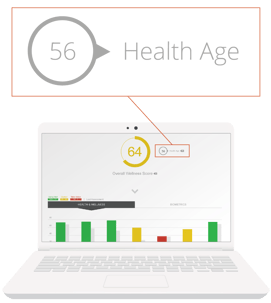Health and wellness practitioners consider many measures as they evaluate a person’s health. Biometric measures—such as height, weight, blood pressure, lab results, etc.—can be taken individually to look for and monitor existing conditions, or taken together to create a more complete picture of a person’s current health. But more information is needed to assess the risk of future chronic diseases—and take preventative measures wherever possible.
A health risk assessment (HRA) helps fill in the gaps by adding another layer of understanding. It collects health and lifestyle information that reveals a person’s risk of developing chronic health conditions—before the condition might show up in bloodwork or other biometric tests.
One of the aspects of health that practitioners consider is an individual’s age. In today’s medical practice, your age is the first determining factor of when certain tests take place. For example, the U.S. Preventive Services Task Force currently recommends screening for colorectal cancer starting at age 50.
But we don’t all age the same way or at the same rate. This difference between your actual age and your level of health is known as your health age.
Chronological Age
Each year on a very special day you get another year older—and, as the saying goes, another year wiser. Your chronological age is the age you turn every year on your birthday—it’s also an important part of your identity and impacts how you may view your health. After all, in the vast majority of cases a 50-year-old isn’t as spry as a 16-year-old, and a 12-year-old isn’t as strong as a 30-year-old.
There are certain expectations of fitness and wellness that the medical community uses as benchmarks throughout an individual’s life that tend to match up with their chronological age. Babies should begin walking between X and Y months old, a fit 10-year-old should weigh N pounds, and a healthy 30-year-old should have blood work that fits within ABC parameters.
Health Age
Your health age is the state of your physical health outside of the “expected” parameters of your chronological age. While your chronological age is determined by your birth date, your health age considers your chronological age in conjunction with factors such as Body Mass Index (BMI), how you cope with stress, and habits such as exercise and whether you smoke or drink. Your body could be in better or worse physical condition than your physician expects based on your chronological age, and this metric is a way to measure the difference.

When assessing the health of your population, knowing both chronological and health ages is ideal. An HRA can help fill in the gaps. With a firm grasp on your population’s risk-status, you can develop—or improve upon—wellness programming that may lead to individuals taking preventive measures in mitigating their risk for chronic diseases.
Wellsource health risk assessments for Medicare, Medicaid, and Workforce populations include a personal report for each participant that prominently displays an overall wellness score and health age. This information is also made available in our physician summary report, a snapshot view of an individual’s risk of chronic disease designed to be quickly consumed by a health coach or physician. And of course, HRA administrators are able to pull aggregate health age reports and summaries to better inform wellness initiatives.








